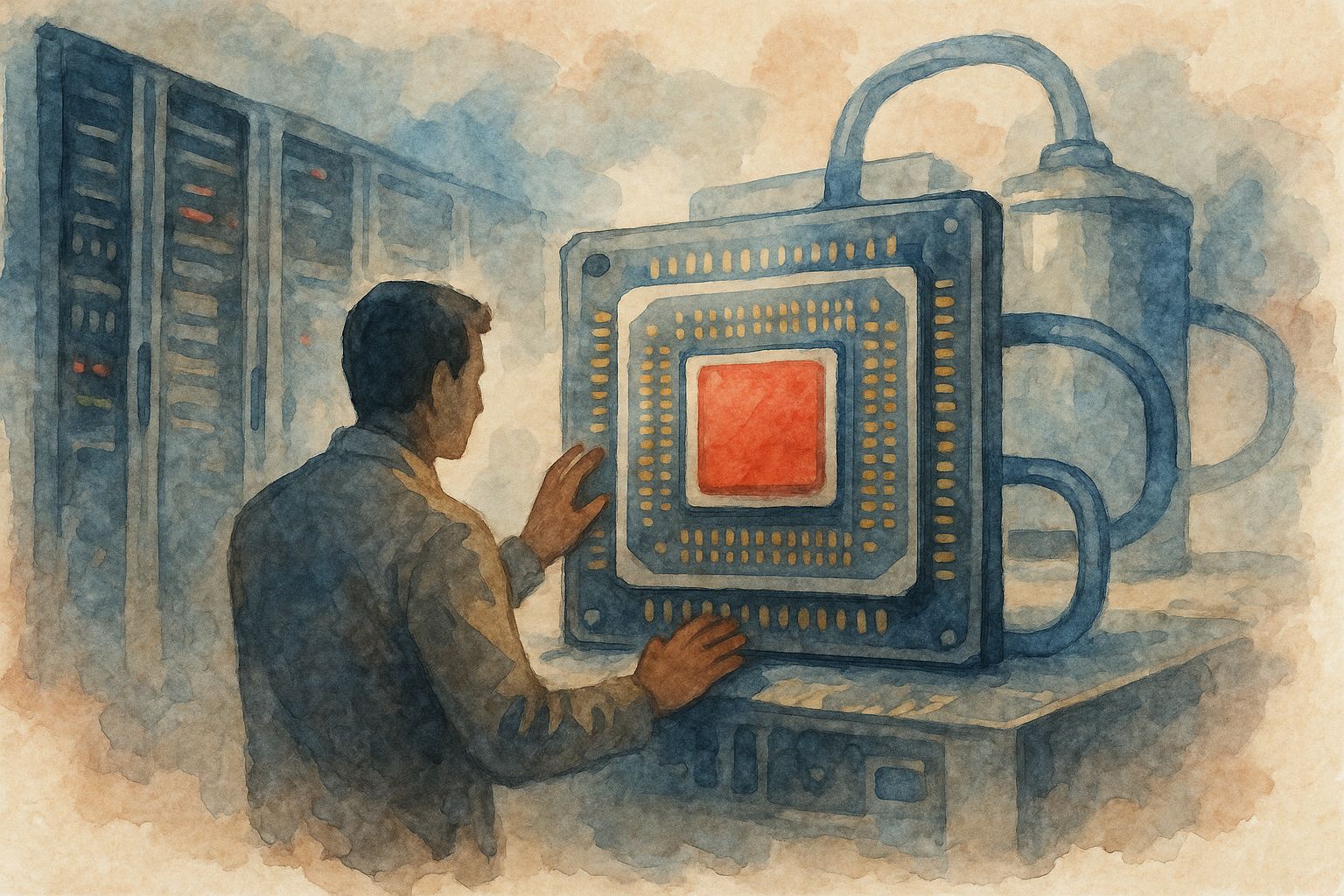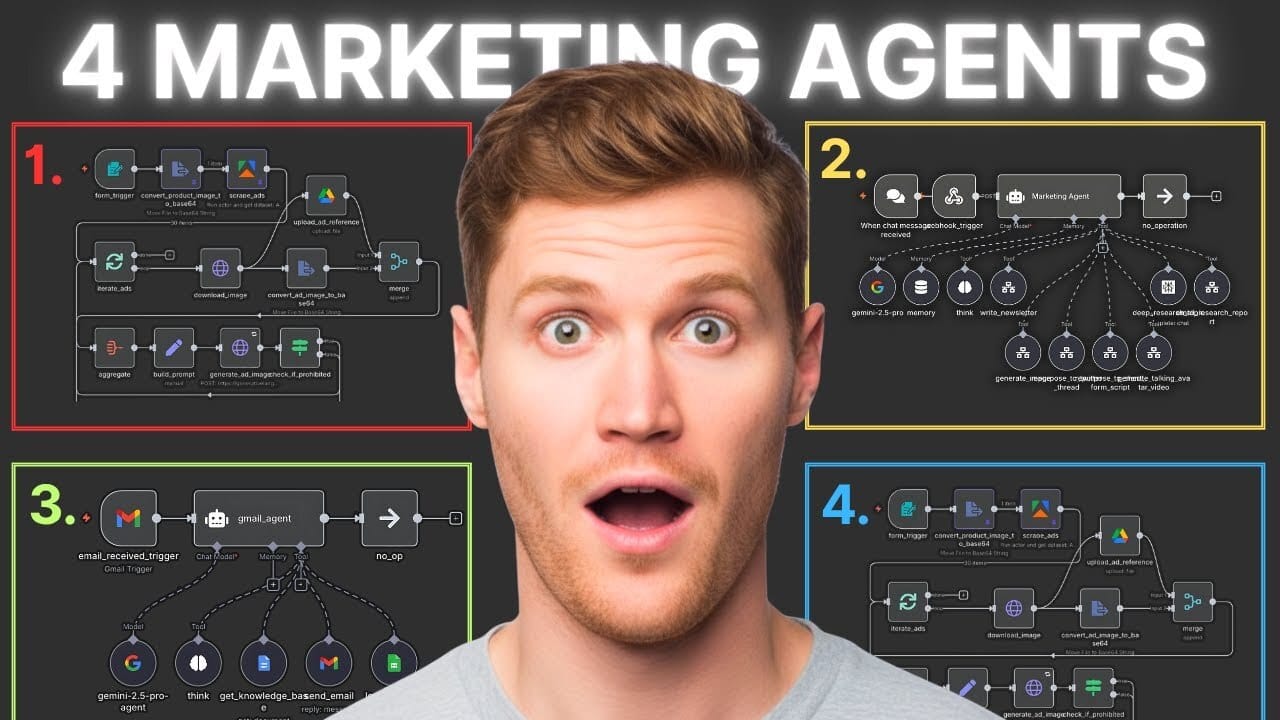- The Recap AI
- Posts
- Ex-OpenAI team raises $300M to build AI scientists
Ex-OpenAI team raises $300M to build AI scientists
PLUS: Mira Murati's stealth lab ships its first product, Microsoft's chip plan, and Peloton's AI coach
Good morning, AI enthusiast.
A new startup from ex-OpenAI and Google DeepMind talent has raised a massive $300M to build 'AI scientists'. The venture, Periodic Labs, is looking to move AI beyond analyzing existing data to actively running its own physical experiments.
By creating new proprietary data through autonomous labs, this initiative represents a major shift from an AI that learns from the past to one that actively discovers the future. Could this new approach fundamentally change the pace of scientific breakthroughs?
In today's AI recap:
Ex-OpenAI team's $300M 'AI scientist' lab
Mira Murati's lab ships first dev product
Microsoft's custom AI chip strategy
Peloton's new AI-powered coach
8 trending AI Tools
The $300M AI Scientist

The Recap: Periodic Labs has emerged from stealth with a massive $300M seed round to build "AI scientists." The new startup, led by ex-OpenAI and Google DeepMind researchers, aims to accelerate discovery by having AI run its own physical experiments.
Unpacked:
The core idea is that AI has nearly exhausted the internet's finite data; the next frontier requires creating new knowledge through real-world interaction, not just analyzing existing text.
An all-star founding team gives the venture huge credibility, including Liam Fedus, who helped create ChatGPT at OpenAI, and Ekin Dogus Cubuk, who led materials science at Google DeepMind.
The company will build autonomous labs to create a closed-loop system, running its own experiments and using the proprietary data—including failures—to train more capable models.
Bottom line: This initiative represents a fundamental shift from AI that learns from the past to AI that actively discovers the future. If successful, it could compress decades of scientific research in fields like materials science and energy into a fraction of the time.
Your Boss Will Think You’re an Ecom Genius
If you’re optimizing for growth, you need ecomm tactics that actually work. Not mushy strategies.
Go-to-Millions is the ecommerce growth newsletter from Ari Murray, packed with tactical insights, smart creative, and marketing that drives revenue.
Every issue is built for operators: clear, punchy, and grounded in what’s working, from product strategy to paid media to conversion lifts.
Subscribe for free and get your next growth unlock delivered weekly.
AI Tools of the Day
🤖 MultiOn – Delegate any online task to an autonomous AI agent that can intelligently navigate websites and APIs to get things done.
🗣️ Tavus – Build applications with conversational video replicas of real people that can see, hear, and respond in real-time.
💻 Anima – Automatically convert Figma designs into production-ready React, Vue, and HTML code to bridge the gap between design and development.
🕸️ ScrapeGraphAI – Extract structured data from any website using simple natural language prompts instead of writing complex scraping scripts.
🎶 Loudly AI – Generate unique, royalty-free music tracks in seconds from a text prompt to perfectly score your creative projects.
🐛 Tusk – Automatically generate unit and integration tests that target critical edge cases directly within your GitHub pull requests.
💌 SmartWriter – Generate hyper-personalized cold emails by having an AI analyze your prospect's online data to discover unique talking points.
🚀 Licode – Build and launch fully functional, AI-powered web applications with databases and payments without writing a single line of code.
Explore the Best AI Tools Directory to find tools that will 10x your output 📈
Mira Murati's AI Lab Ships

The Recap: Thinking Machines Lab, the stealth startup from former OpenAI CTO Mira Murati, has launched its first product: Tinker. It's a powerful new API designed to simplify how developers create and fine-tune custom AI models.
Unpacked:
Tinker allows developers to write training loops in Python on their local machine, while Thinking Machines handles the complex job of running them on distributed GPUs.
The tool abstracts away the difficult infrastructure challenges of post-training, giving researchers and developers more control over the core algorithm and data.
It aims to bring frontier tools to a wider audience, enabling more people to experiment with and customize cutting-edge open models for their specific needs.
Bottom line: Tinker lowers the technical barrier for building specialized AI, shifting model creation capabilities from a few large labs to more individual researchers and developers. This could lead to a wave of custom AI tools built for niche industries and unique problems.
AI Training
The Recap: In this video, I'm breaking down 4 of the marketing agents I've built to automate away my $100,000k+ marketing team. These include morning-brew style newsletter agents, content repurposing agents, ad generators, and SEO agents.
P.S. We also launched a free AI Automation Community for those looking to build and sell AI Automations — Come join us!
Microsoft's Silicon Strategy

The Recap: Microsoft's CTO Kevin Scott confirmed the company's long-term goal is to primarily run its data centers on its own custom-designed chips. This strategic shift aims to reduce reliance on NVIDIA and control the entire AI hardware stack.
Unpacked:
The strategy goes beyond just silicon; Microsoft aims to design the full data center system, including networking and cooling, to optimize performance for specific AI workloads.
This builds on existing custom chips like the Azure Maia AI Accelerator and is enabled by innovations like microfluidic cooling, which brings liquid coolant directly onto chips.
The move reflects an industry-wide race for vertical integration, with Google and Amazon also developing custom chips to navigate the massive crunch in available AI compute capacity.
Bottom line: Controlling the entire hardware stack gives Microsoft the ability to build more efficient AI infrastructure, becoming a critical advantage for delivering next-generation AI services at scale.
Where AI Experts Share Their Best Work
Join our Free AI Automation Community
Join our FREE community AI Automation Mastery — where entrepreneurs, AI builders, and AI agency owners share templates, solve problems together, and learn from each other's wins (and mistakes).
What makes our community different:
Real peer support from people building actual AI businesses
Complete access to download our automation library of battle-tested n8n templates
Collaborate and problem-solve with AI experts when you get stuck
Dive into our course materials, collaborate with experienced builders, and turn automation challenges into shared wins. Join here (completely free).
Peloton's AI Coach

The Recap: Peloton is embedding an AI-powered personal coach into its new lineup of bikes and treadmills. The feature, Peloton IQ, uses a movement-tracking camera to provide real-time feedback on exercise form.
Unpacked:
The new computer vision system analyzes your form, counts reps, and provides personalized workout advice to help you improve.
This feature evolves from Peloton's previous standalone camera, the Guide, integrating the tech directly into the primary equipment based on user feedback.
This is the first major product launch under new CEO Peter Stern, aimed to kickstart growth and broaden Peloton's reputation beyond cardio.
Bottom line: Peloton is betting that integrating AI coaching directly into its hardware can make personalized training more accessible at home. This move is a major test of whether AI-driven features can revive the brand and justify premium prices.
The Shortlist
Google appears to be blocking its AI Overview feature from answering queries about Donald Trump’s cognitive health while still generating summaries for the same questions about Joe Biden.
Anthropic revealed in a safety analysis that its new Claude Sonnet 4.5 model shows signs of situational awareness, occasionally recognizing it was being tested and asking evaluators to be honest about their intentions.
Stanford released OpenTSLM, a new class of foundation models designed to natively handle time-series data, enabling direct reasoning and forecasting over temporal signals like sensor pulses or price ticks.
Yale found in a new study that generative AI has had no discernible disruptive impact on the U.S. labor market since ChatGPT's launch, undercutting widespread fears of immediate job erosion.
What did you think of today's email?Before you go we’d love to know what you thought of today's newsletter. We read every single message to help improve The Recap experience. |
Signing off,
David, Lucas, Mitchell — The Recap editorial team



